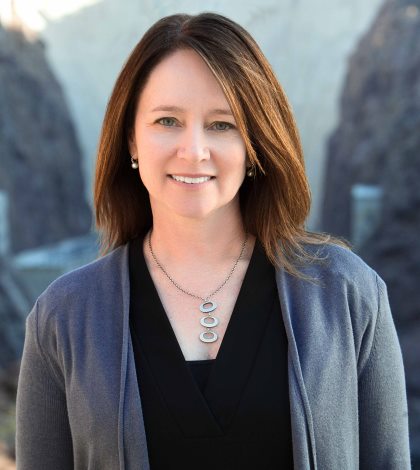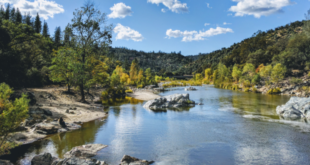Brenda Wren Burman, the 23rd Commissioner of the Bureau of Reclamation, has more than 25 years of working on Western Water Issues and is the first female commissioner. Burman employs 5,500 people who are charged with the task of overseeing water resource management as it relates to water rerouting, water delivery and water storage projects that fall under its responsibility in 17 western states of the United States for water supply, irrigation and power generation.
Burman replaced Commissioner Estevan López, who was commissioner from 2014 to 2016. Before becoming Commissioner for the Bureau of Reclamation, Burman served as Director of Water Strategy at the Salt River Project. A major electric utility for the Phoenix area, as well as a water company in 2015. Burman also held responsibilities at the Metropolitan Water District of Southern California as a special projects manager, handling issues on the Colorado River and the Sacramento-San Joaquin River Delta.
As a Deputy Commissioner of the U.S. Bureau of Reclamation, in the Bush Administration, Burman was responsible for relationships with federal, state, and local governments, as well as citizens and other nongovernmental groups. As the Bush administration was leaving office, Burman found work as a senior water policy administrator for The Nature Conservancy in 2011.
Burman, in her four years of private practice, handled natural resource complaints. In 2002, she became legislative counsel for energy and water for U.S. Senator Jon Kyl. Burman expresses a great deal of tenacity when it comes to Native American water rights issues. Having such victories under her belt as the Gila Settlement, where she was directly responsible for staffing the most extensive Indian water settlement in U.S. history, the Central Arizona Project settlement with the United States, and the Tohono O’odham Nation Indian Water Rights Settlement where she was able to push the settlement through the Congressional authorization process. Burman was then able to mobilize The Tribe, the Department of the Interior, and the parties back at home to do the hard work to bring everything together to make that particular settlement a reality.
Burman in speaking of her time during private practice and handling Native American Water rights said “What I learned from supporting Senator Kyl and working with all the parties to the Gila Settlement, as well as the Central Arizona Project settlement with the United States and the Tohono O’odham Nation Indian Water Rights Settlement, was how important it is to understand each party’s needs and wants, strengths and weaknesses, and their political pressures back home. Water rights settlements take years of negotiations, years to secure Congressional passage, and then years to implement. You have to learn when to push, when to get out of the way, and at times, where to draw the line. Cooperation and principled leadership are key.”
Burman was born in California and grew up in Minnesota and New Jersey. She worked as a volunteer trail crew member at Carlsbad Caverns National Park in New Mexico. Later, Burman worked as a park ranger at the Grand Canyon before going to law school at the University of Arizona. After she earned her J.D. in 1996, Burman served as a clerk on the Wyoming Supreme Court. Burman enjoys hiking and the Arizona Diamondbacks baseball team. She is licensed to practice law in Arizona, Colorado and Wyoming.
 California Water News Daily Your Source For Water News in California
California Water News Daily Your Source For Water News in California


